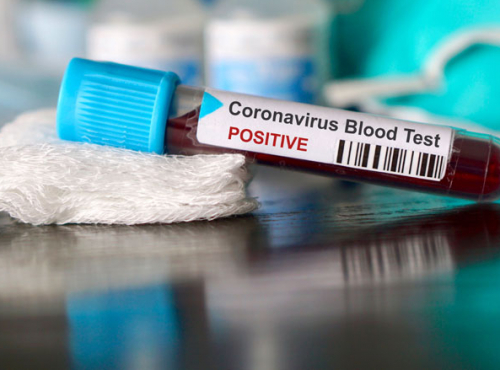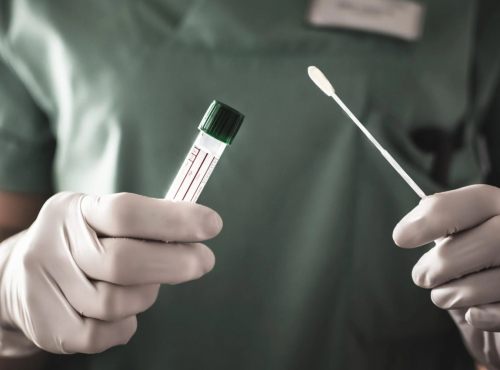The Operational Headquarters for the protection of the population from coronavirus infection held a briefing on the condition of the diseased and on further actions of the Operational HQ.
All new cases of COVID-19 sick citizens of Abkhazia are cadets of Russian military universities who arrived in the Republic from Moscow last week and were isolated in an observational institution. This was announced by the Minister of Health of the Republic of Abkhazia Tamaz Tsakhnakia at a briefing by the Operational HQ on the situation with the coronavirus on Saturday, May 9.
He specified that all patients were admitted to the Gudauta Central District Hospital and undergo necessary treatment there. Their condition is assessed as satisfactory.
“As before, we want to emphasize that the points of the President’s decree regarding the introduction of restrictive measures, including at the state border, are very relevant. We have always emphasized that cases of coronavirus infection will be precisely “imported” from neighboring states. Those patients who were previously hospitalized were also “imported” cases, therefore it is extremely important to maintain, and maybe even strengthen the strict regime at the state borders,” the Minister said.
In his opinion, it is necessary to try to minimize the access to the Republic of potentially infected people.
“We cannot but let our citizens into the territory of the Republic. Here is the great responsibility of every citizen, who, understanding that he is traveling from the territory where the epidemic is today, must certainly remain in strict self-isolation, without putting his relatives and other people at risk. Everyone who crosses the border should be under the control of the sanitary-epidemiological service. The control measures will be tightened, these measures are very important and they must be strictly implemented,” Tsakhnakia is convinced.
He recalled that the entire range of approved restrictive measures is valid until May 15. Then, at the next meeting, the Coordination Headquarters will take further measures and decisions regarding the preservation or relaxation of these measures.
“One thing is clear - the border remains closed,” the Minister of Health emphasized.
Addressing again the citizens with the request to be extremely careful in observing precautionary measures, he urged everyone not to attend mass events, try to stay at home as much as possible, be sure to wear masks when leaving the town, and use antiseptics to treat hands.
“Those who return to the territory of Abkhazia from the Russian Federation must certainly go to 14-day quarantine in conditions of self-isolation. We can not guarantee that the number of infected people will not increase. There will be more in the future. Ahead is the autumn-winter period, when there is an increase in the number of patients with acute respiratory diseases. The second, and maybe the third wave of coronavirus infection is predicted precisely in the autumn period, and we must be prepared for this. Therefore, all those measures that were previously taken will be relevant in the future,” Tamaz Tsakhnakia concluded.
At the briefing, Alla Belyaeva, Chief Sanitary Inspector of Sukhum, also spoke. She noted that new patients after crossing the Abkhazian-Russian state border did not contact anyone.
“All four of the diseased are students from the same educational institution. After crossing the border, they did not contact anyone and were immediately placed in isolation in an observational institution. However, they contacted each other, both in the educational institution and along the way. Therefore, they are no longer in isolation, but in quarantine. As for the remaining students of military universities and higher education institutions of the Ministry of Internal Affairs, they are placed separately from the sick, are isolated and are healthy today,” said Belyaeva.
On May 8, the Operational Headquarters for Protecting the Population from Coronavirus Infection reported that 4 more cases of COVID-19 were detected in the country.
Earlier, at the end of March, a state of emergency was introduced in Abkhazia, which was valid until April 20, after which it was not extended by decision of the authorities. At the same time, the authorities urge the country's population to continue to comply with restrictive measures to combat the spread of infection.
All the towns of Abkhazia currently have central markets open three days a week. Schools, kindergartens and the university remain closed.


to login or register.